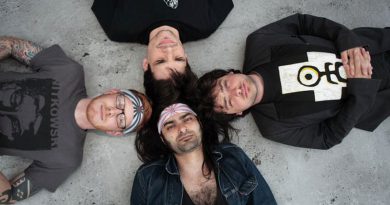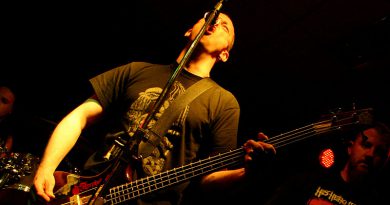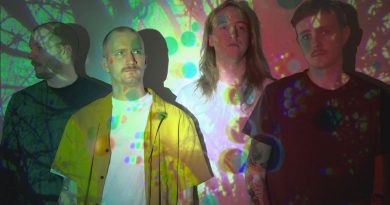Dead Space Chamber Music: Interview With The Medieval Neo-Folk Quartet
In relation to my recently published review of the dark neo-classical beauty that is The Black Hours, Dead Space Chamber Music’s second album, they contacted me and presented me with the opportunity to throw some probing questions at them, which I was more than happy to do. This brooding record draws from baroque, neofolk, renaissance, medieval, post-rock, avant-garde, and ambient among others, however, it is (after all that) most definitely non-genre specific and this comes from the mouths of the band members.
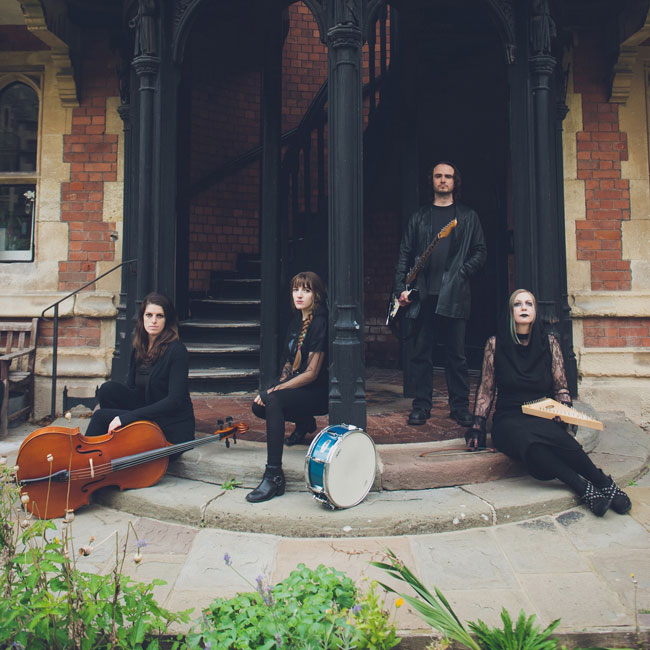
In layman’s terms, this means it will appeal to a wide range of listeners if they listen with their ears and without any prejudice. As my review says I found it ‘exciting, stirring and extremely moving’ but most importantly extremely authentically done. For four people to reproduce music from as far back as the 15th Century with a contemporary edge in these days is no mean feat.
I suggest you give it your attention and if you‘ve already done so I hope my questions dig a bit deeper to discover what makes the band members tick, and also to give us some more information into how they created such a wonderful record.
I can hear a real authenticity in your sound, plus also a wide range of influences from the extremely distant past, but also to now. I love how you’ve combined such historical music as dark medieval but also doom, ambient, neofolk and maintained that authenticity. Not easy to do! The only contemporary group I can think of that have done this with any level of success has been Dead Can Dance.
The 21st century allows you a certain freedom, which maybe Dead Can Dance never had starting out. It’s great for you guys, plus many other bands working within a similar field that this is the case nowadays. The ‘do what you like’ attitude initially brought about through punk still resonates. As the singer in the band, I’d be interested to know if you feel any restraint or confinement in what you can, or are allowed to do musically in the band and would you like to take if further leftfield and out there?
Ellen: I do have my own project called Site Singing where I experiment with my voice in local heritage sites and historic places, including abandoned bridges, beneath castles, amongst medieval ruins, or within neolithic burial mounds. In these places, I create field recordings and base solo live performances on them. The whole premise was in fact to take myself ‘out there’ both physically and vocally! That has helped me explore my voice as an instrument, in its full range of sounds and textures.
I experiment with my voice in local heritage sites and historic places, including abandoned bridges, beneath castles, amongst medieval ruins, or within neolithic burial mounds…
The band gives me the opportunity to combine this experimental approach with my love of song, because in the band we create both abstract and melodic material. The band inspires me to both push myself individually and to explore what I can do in combination with others, things I would not have found by myself. Plus, we have used some of my vocal sound-works and field recordings in our music. Working with musicians you admire, and respect is a fascinating journey, and I feel lucky to have this.
Who are your audience? Big question I know but are they essentially from the classical world or from all different musical backgrounds? I ask this because I think your music would appeal across many genres.
Ellen: We think you said it right when you said our music could appeal across many genres. What we do is not genre-specific, which has made us wonder how to reach people as it’s probably easier if you can place yourself and grow within a specific scene. But there’s a lot of independent music that sits between genres and finding like-minded people is easier when you do what you do authentically. We try and connect to others, not only by genre, but through other qualities, like a certain level of commitment to your art, or creating a certain kind of atmosphere in interesting ways, for example – we love exchanging ideas and learning from people we admire.
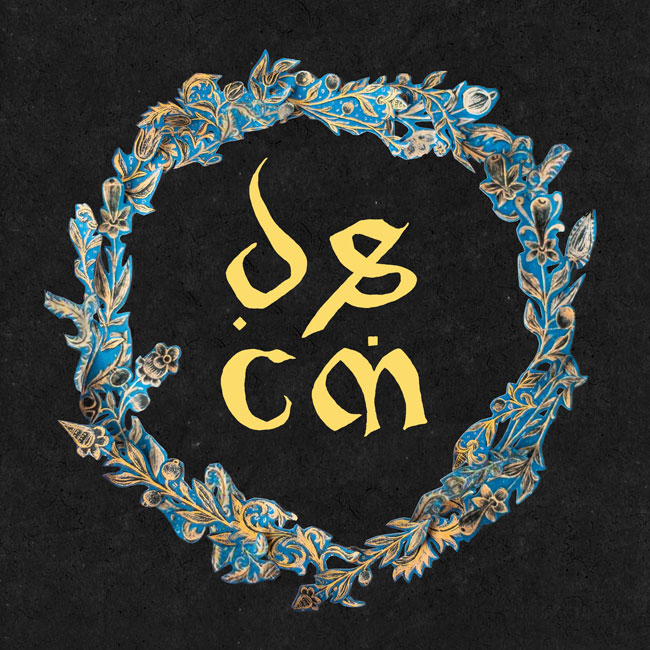
Tom worked in a cemetery for years. Did that trigger his interest in the past and its influence on the music. It must have influenced his thinking being surrounded by so much death?
Tom: Spending years in that kind of working environment may have made me detached from the present in certain ways. If there is an influence it would be mainly unconscious. I wouldn’t want to make specific connections between that and the music, but it probably does shape the general aesthetic in some way.
You began as a duo and then became two girls and one guy in the band. Who dominates proceedings by arranging and taking what you all bring to the band and beautifully placing it all on tape?
Ellen: There are four of us now, cello (Liz Paxton), voice (Ellen Southern) guitar (Tom Bush), and drums/percussion (Katie Murt), and it’s very much the approach of an ensemble or of chamber music, in that it’s a meeting of musical minds. Chamber music started as a small scale (room size) musical form, in contrast to larger scale orchestral music. It then evolved into being a ‘music of friends’, created in musicians’ own homes with a kind of focus, a kind of listening, and a kind of intimacy that we relate to – very much reacting to reach other in the moment.
We also like to feel the audience sharing that space with us and their presence being part of creating the whole experience. There is no leader, we function very equally, while each brings their own strengths to the table of course. We are all interested in exploring the possibilities of our instruments and finding new things we can each do through what the others are doing, so we can develop individually and together at the same time. We tend to try out different ideas in the rehearsal space, which we record, and then develop and refine the material from there, trying out ideas in progress live.
we reinterpret early music, so pre-classical which covers hundreds of years, plus traditional material too…
Are you all classically trained, plus how did you get hold of and decide on reinterpreting music from the 15th Century? Are the manuscripts easy to come by and read? They must be very fragile unless they are replicated online?
Ellen: It’s not specifically the 15th century, we reinterpret early music, so pre-classical which covers hundreds of years, plus traditional material too. Liz has a classical background and Tom has some classical training also, but we have all learned musicianship in different ways. Our musical experience varies, including choirs in my case, and drumming annually in the Padstow May parade in Katie’s case!
As for notation of early music, it’s all available online these days, either as scans of the original manuscripts or transcriptions in modern notation. They are public domain so they’re easy to find. Depending on how far back you go, the notation will provide only an outline of the music as there was much left open to the performers in terms of arrangement and improvisation (similar to jazz in the twentieth century). That said, a good way to learn is to find recordings made by contemporary experts in early music and transcribe what they have done.
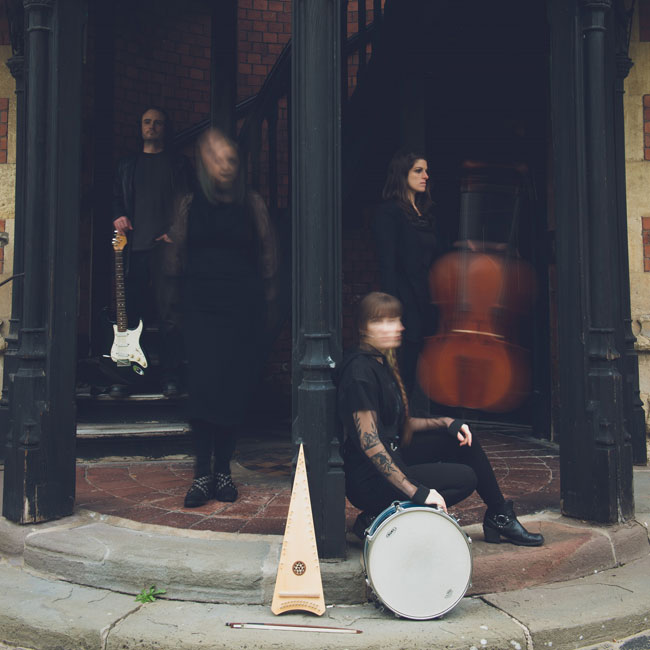
6. Who creates and decides on the ‘atmospherics’ (Ion II) and how do you go about creating them?
Ellen: Ion was created with a church acoustic in mind as we were due to perform at St John on the Wall in Bristol – we thought the sound would carry beautifully there and it did, both there and in St Thomas the Martyr’s church when we performed it there alone during semi-lockdown. This piece would be an example of something that was developed over time through improvisation, both in the studio and live performance. Certain elements often get decided beforehand however, in Tom’s case a particular atonal chord series, and bowed cymbal through effects for Katie.
The Black Hours really is an aural vehicle into the past. I aim to give it a listen on headphones in the dark ASAP, which it doesn’t really need to bring it to life because it has plenty of that, but it’s something I like to do. Once it was finished in the studio did you all try this?
Ellen: It certainly is something to listen on headphones, yes! All the details of Tom Berry’s work (who recorded, mixed, and mastered the album) can be heard, for example panning the sound in certain moments, like at the start of The Pit, to make it completely immersive and to heighten the tension and emotion. When listening to the work in progress we tried to listen on different speakers (including laptop and phone speakers) to see how it sounded every which way it might be eventually heard and seeing if it was doing what it needed to do. But yes, the first moments where we felt the album truly click was listening on headphones with closed eyes! Hopefully this will expand if the album gets embraced and better known, to when we perform it in full, one day…!
Ion was created with a church acoustic in mind as we were due to perform at St John on the Wall in Bristol – we thought the sound would carry beautifully there and it did…
Bristol is a music city. Have you found the local music community to be of help to you or do you see yourselves as being very much out there on your own?
Ellen: We think that there are groups and clusters which interact to different degrees within the Bristol music scene, so we wouldn’t say it’s all one single community. We started very much on our own, and over a period of time initiated an event series (Dark Alchemy) as we weren’t sure where we fit, or how to get gigs, so we just created them! The Dark Alchemy events were held in unusual spaces like churches and crypts, thanks to The Churches Conservation Trust who saw that we adored, respected, and felt strong connections to the spaces.
The atmosphere of the nights we were hosting was very connected to the sacred spaces themselves, and as a band, this has very much formed our sound (for example creating wide dynamics – very loud and very soft sounds within a single song – to explore spatial acoustics), our aesthetics and sense of the subtly dramatic, all as part of an immersive approach to our playing live.
Through these events, which grew in scale as we started co-curating them with our friend Tommy Creep (a dark ambient synth artist), we met and became known to some local musicians, as well as hosting musicians from the rest of the UK and Europe in Bristol for the first time, and that’s how we connected to Avon Terror Corps, who we are co-releasing the vinyl with. So, it’s a scene of scenes really but honestly, it’s mainly down to individuals we have connected with.
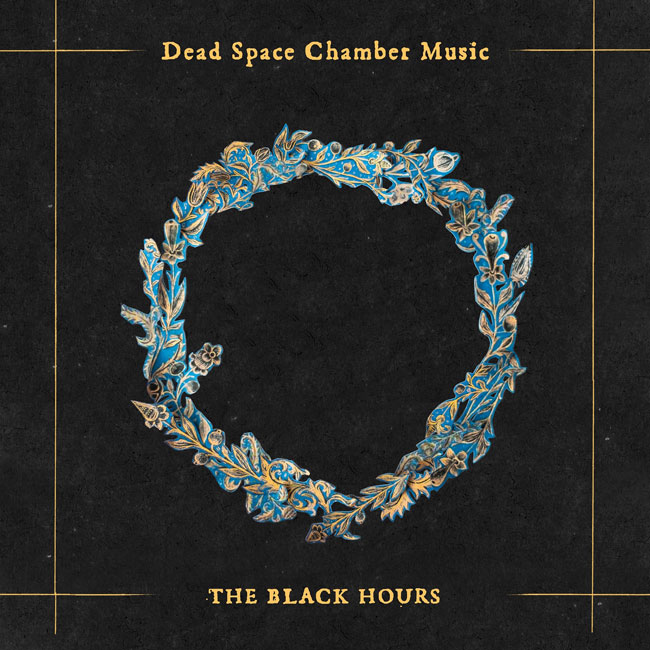
The space in your music is very important to the overall picture. Is there any other instruments you haven’t used yet that you would be open to?
Ellen: We would like to start work on a third album and have decided to expand in this way. Tom occasionally plays bass, Liz can play piano, Katie plays guitar, and I’m looking into wind instruments. We have also been considering some vocal harmonies, so there’s plenty of options to experiment with. We also want to try and build some sound making/percussion instruments too, so we have some sounds that are unique, as well as maybe recording in certain locations – doing this in some natural environments would be the dream!
We feel we’ve played together enough to have developed our sound…
Lastly, it’s unusual for a band as young as you are (I have no idea your ages, but you look young) to follow the musical route you’re on. I’m interested to know how you all met and was it an instant ‘likeminded souls’ moment?
Actually, we’re not so young! Our collective age range is 30 – 44! We’ve all evolved as musicians from a really wide range of styles and influences and we were all seeking to put this experience into something serious that had potential/mileage. We feel we’ve played together enough to have developed our sound, we can identify it, and yet we’re excited to always surprise ourselves too. We love exploring, but we know when something is ‘us’ for sure!
Thanks for answering our questions, we hope our readership discovered more about the sound and compositions of Dead Space Chamber Music who’s current album The Black Hours is out now on various formats and available over on Bandcamp.
Label: Independent | Avon Terror Corps
Band Links: Facebook | Bandcamp | Twitter | Instagram
Interviewed by: Tim Keppie

